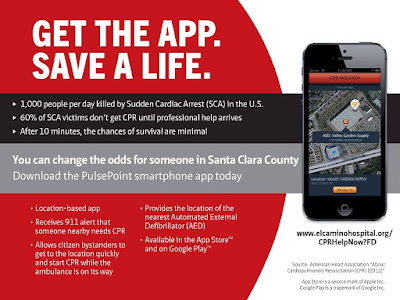Over the last few years, the argument that social media and technology is ruining people's lives and relationships has been ever present. You hear of people doing "social media fasts," and the older generation saying that young people do not know how to connect in the real world. Amanda states that, "We see people all around looking down at their phones, not bothering to look up and notice the people around them. You never know if there is a person you need to meet, or someone you need to smile at. Digital media hinders this." This is a provocative statement, but truth of the matter is that social media and technology SAVES LIVES.
Get Connected, Contribute Your Individualism To Our Society
During the renaissance the idea of individualism started to take off. However, this idea was different from the view of individualism today. The humanists of the time encouraged everyone to gain an education and gain knowledge for themselves so that they could contribute to the greater whole of the community. Through this movement began the idea of civic engagement and participation in the political process. We need to do the same the today. Look outside of ourselves and put our knowledge and resources together to make a difference in our communities, which with our technology, encompasses the globe. There are many ways that connecting and collaborating in our day can make a positive impact. See more of those possibilities in our group post.Collaboration
Karen Kear in her book "Online and Social Networking Communities," discusses how social media and online collaboration has improved education. Students of all ages and can connect online and study together while not being in the same location. Studying has evolved from an individual practice with you and your books into a community activity, helping each other learn through online connection and resources. We can use our personal knowledge to help our peers or classmates learn, and in turn, we will learn from their personal knowledge.The collaboration does not need to stop in the classroom or in education. Collaboration can move into real world applications that can save lives. I will discuss two issues and how online collaboration has helped to fight those issues. Cardiac arrests and earthquakes, kill people every year, here's how collaboration through online tools has helped to decrease that death toll and save literal human lives.
Saving Lives In Disaster Relief
In his ignite talk, Schuyler Erle describes how the open source mapping project, OpenStreetMap,changed disaster relief after the devastating Haiti earthquake. Rescuers where using existing data such as Google Maps, and ran into problems because the information was out of date. Bridges were collapsed, and previously used routes were destroyed or blocked. Through OpenStreetMap, programmers around the world used up to date satellite imagery to map the area surrounding the earthquake so rescuers could know what the real obstacles were. This innovation saved many lives during that disaster.
Pre-Hospital Care and Technology, Why I Care.
 |
| I love the outdoors and helping people. I will use my skills and online tools to save lives. |
 Pulsepoint is a mobile app that anyone can download on their phone. The app is also implemented into the local 911 dispatch center. Once implemented, the app will notify anyone with the app when a cardiac arrest has occurred in a public place within walking distance of their location. Sitting in a restaurant eating lunch, I could recieve a notification on my phone that someone was having a cardiac arrest next door. I could then jump into action, use the app to find the closet AED and begin using my life-saving skills long before first responders could arrive on scene. Once they arrive, I would turn life support over to them and let them take it from their. PulsePoint uses willing individuals to save lives through use of technology and collaboration. In the 2015 CPR guidelines produced by the American Heart Association, they encourage communities to use social media and mobile app technology to alert CPR responders of cardiac arrest so that bystander CPR can be started quickly, and increase the chances of survival of the victim.
Pulsepoint is a mobile app that anyone can download on their phone. The app is also implemented into the local 911 dispatch center. Once implemented, the app will notify anyone with the app when a cardiac arrest has occurred in a public place within walking distance of their location. Sitting in a restaurant eating lunch, I could recieve a notification on my phone that someone was having a cardiac arrest next door. I could then jump into action, use the app to find the closet AED and begin using my life-saving skills long before first responders could arrive on scene. Once they arrive, I would turn life support over to them and let them take it from their. PulsePoint uses willing individuals to save lives through use of technology and collaboration. In the 2015 CPR guidelines produced by the American Heart Association, they encourage communities to use social media and mobile app technology to alert CPR responders of cardiac arrest so that bystander CPR can be started quickly, and increase the chances of survival of the victim.These are just two examples of how we can use technology to collaborate and improve lives of fellow members of our society. How are you going to use social media and online collaboration to make a positive impact on the lives of real people? Join the conversation using #technologysaveslives.




No comments:
Post a Comment